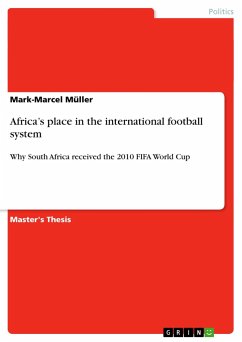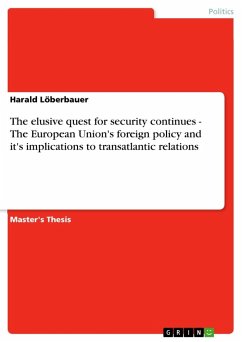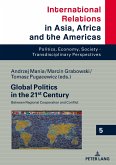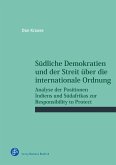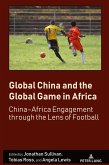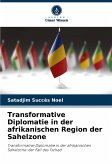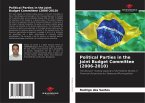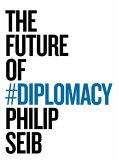Master's Thesis from the year 2007 in the subject Politics - International Politics - Region: Africa, grade: 70, Stellenbosch Universitiy, language: English, abstract: For millions of people around the globe, football is an important part of everyday life. Similarly, many African governments have found in international football competitions one of the few opportunities to be internationally represented. Furthermore, through successful participation of their respective national football sides, they internally seek to foster nationhood. In fact, football is an integral part of African self-esteem with regards to being recognised by the rest of the world. However, to succeed in international sports means to succeed in a politico-economic structure far from equality and general solidarity. This thesis goes about the question why South Africa received the FIFA 2010 World Cup. Thereby it will distinguish the position of the African continent within the international football system. A historical analysis will clarify the processes and actors as well as the driving motivations which led to the FIFA World Cup host decision in favour of the African continent. The outcome of this study suggests that social interaction is driven by the interplay of two variables: normative principles and economic practices. The historical development of modern social behaviour from the 16th century until today's global capitalism surely reflects the interplay of these two traits. At the hand of the historical development of the international football system this thesis is going to outline this interplay - as a European form of behaviour that came to encapsulate all social relations on the globe particularly by the spread of the cultural practice of football. This study reaches the overall conclusion that the decision to let an African nation host the FIFA World Cup meant that economic practice and normative principles were brought into perceived congruence.
Hinweis: Dieser Artikel kann nur an eine deutsche Lieferadresse ausgeliefert werden.
Hinweis: Dieser Artikel kann nur an eine deutsche Lieferadresse ausgeliefert werden.

